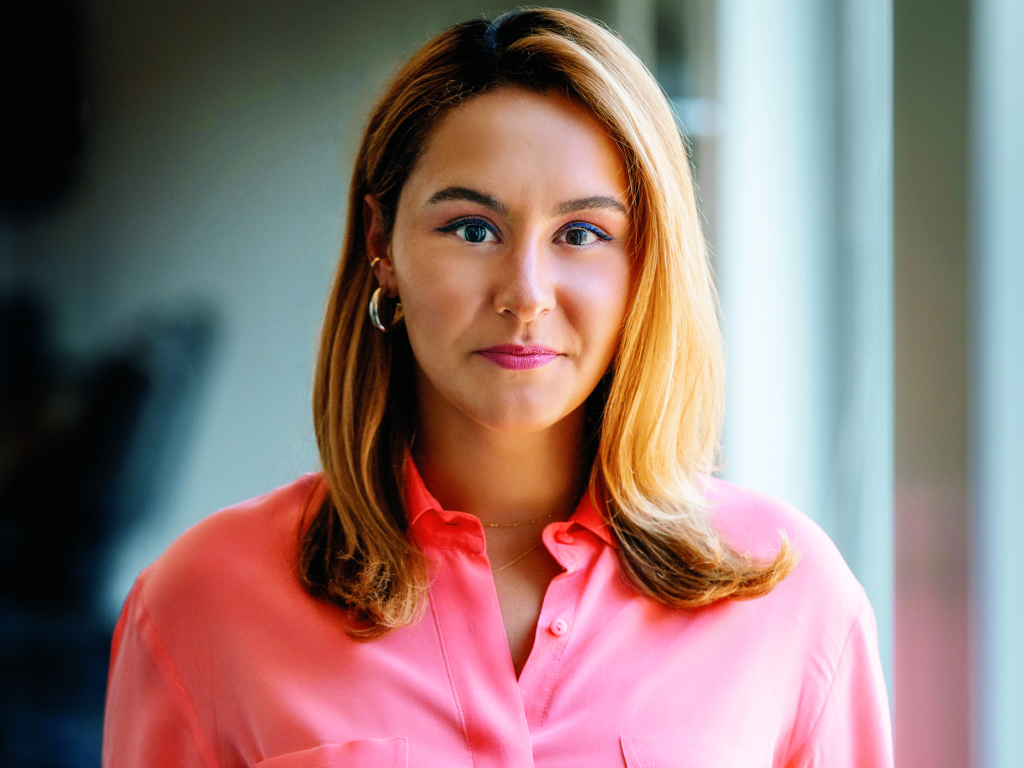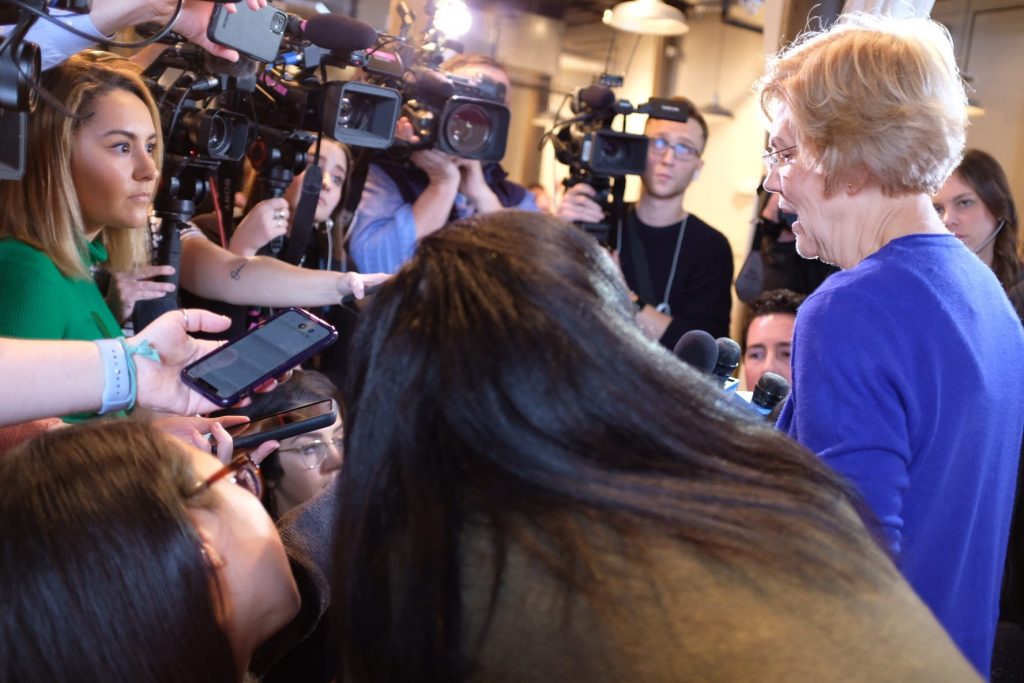- Ali Vitali in her new book, "Electable," detailed the challenges faced by female presidential candidates.
- In an interview with Insider, she spoke of the Clinton comparisons faced by WH aspirants in 2020.
- Vitali said more women running for the WH will give voters more archetypes of female candidates.
As the 2020 Democratic presidential field began to form, the set of candidates was unlike any other group in history.
While the race featured familiar faces like now-President Joe Biden, Sen. Bernie Sanders of Vermont, and former New York City mayor Michael Bloomberg, the female candidates who entered the race in many ways shouldered the burden of former Secretary of State Hillary Clinton's 2016 presidential loss to Donald Trump among some voters.
With Democrats eager to oust Trump from the White House, voters were largely hesitant to take a chance in nominating a candidate who wasn't extremely well known on the national political scene.
For the onetime female candidates, which included now-Vice President Kamala Harris of California, Sens. Elizabeth Warren of Massachusetts, Amy Klobuchar of Minnesota, and Kirsten Gillibrand of New York, along with then-Rep. Tulsi Gabbard of Hawaii and author Marianne Williamson, such a proposition was a difficult thing to overcome.
As NBC News Capitol Hill correspondent Ali Vitali explores in her new book "Electable: Why America Hasn't Put a Woman in the White House … Yet," it will seem difficult for a woman to be elected to the presidency until voters simply elect a woman to the office.
"Seeing and imagining things that you've never actually seen before can be hard for voters because it almost becomes a little bit of a self-fulfilling prophecy and that's where words like 'comfortable' and 'electable' come into play for people like Joe Biden," said Vitali, who covered Warren's 2020 presidential campaign.
Below are excerpts from a conversation with Vitali:
In the book, you wrote how Biden only considering women as his vice presidential running mate received mixed feelings from political observers and even some women in the party. Did this surprise you?
No, because it is a double edged sword. There's a world in which people that I spoke to for the book talked about how powerful it was to have Biden lay out that mile marker. Plus, politically it was advantageous to have diversity on the ticket. The fact that Harris was a woman and a woman of color was a sign of progress for the fact that there was an acknowledgement within one of the two parties — Democrats in this instance — that you needed to have diversity on the ticket. Having a woman was an asset. The Biden campaign put forward the idea that they were going to choose a woman no matter because it was a powerful moment in being female.
And then on the other side of it, there were people who understandably felt like Biden could have gone through and said, "I'm gonna pick the best person period." And then maybe even if he still only vetted women, the message would've come across that the best person was a woman.
Do you think the mixed reactions for the vice presidential selection process stemmed from the fact that female politicians are often not automatically seen as potential presidents among some voters?
That might exist. With the exception of Barack Obama in 2008 and 2012, the rest of the presidents that we have seen have all looked and sounded the same. They have all been white men of a certain age. And Biden is able to have words like "comfortable" and "not risky" associated with him because of that, despite the fact that he ran for president two times prior to 2020 [in 1988 and 2008].

In the book, you go into detail about a February 2019 campaign stop in South Carolina, where Harris — who was still running for the presidential nomination at the time — went shopping to promote small businesses. You and a handful of your female colleagues were criticized by several male journalists, including Fox News journalist Brit Hume, for what he deemed as "recommending what the candidate should wear." You essentially were just tweeting about the retail stops as you covered the event. What was your reaction to the criticism?
My first reaction was, "Seriously?" I was truly shocked that this became an issue because candidates have done retail politics stops for decades. This is the bread and butter of presidential campaigns. The 2020 campaign was my second presidential cycle. In 2016, I covered Republicans predominantly; during that campaign, I remember reporters went on a skeet shooting campaign stop with Sen. Lindsey Graham. They wrote stories about it and no one batted an eye at the fact that reporters were along for the ride on this trip and clearly having personal interactions with the senator.
Kamala Harris took a very on-brand retail politics stop on Lady Street in [Columbia] South Carolina, a street of predominantly female-owned and female of color-owned businesses. She was highlighting a community builder and the story got co-opted by "Female candidate tries on sparkly jacket during shopping spree with female reporters." To me, that evidenced the fact that there were so many pitfalls in the path of female candidates who could go on a normal campaign stop and all of a sudden, somehow find themselves having to play defense.
Do you think there will continue to be a "Hillary Clinton" factor, where future female presidential candidates will seemingly still be compared to her?
Maybe. I do think that by having more women run in 2020, the candidates did have to contend with being compared to Clinton at various points, even when the comparisons made no political sense. I remember early on in the campaign, Warren was tagged as having the "ghost of Hillary Clinton," despite the fact that even though they're both blonde women of a certain age, they are not politically comparable in that Warren is to the left of Clinton on most policy issues. But because you had six women [in 2020] expand the archetype of what a woman can look like running for president, it means that there are more comparison points, and that's really important.
What do you think it will take for a woman to be elected president?
The answer to the question of how you get a female president is actually just more of them need to run. The process is likely going to be governed by Biden and Trump in 2024, as both of them are saying that they're likely going to run for president. But what I think you will see is that in presidential primaries going forward, you will never again have fields that are only men. You will have at least one woman running in those fields. And the more of them that run, the more archetypes you can see.
